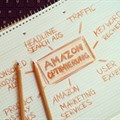
Subscribe & Follow
Jobs
- Head of Digital Johannesburg
- Social Media Specialist Johannesburg
- Digital Brand and Marketing Manager Cape Town
- Digital Projects Administrator Pretoria
- Mid-level SEO Specialist Cape Town
- Digital AI Intern Cape Town
- Paid Media Specialist Cape Town
- Video Editor Cape Town
- Content Creation Lead Cape Town
- Copywriter Cape Town
Why you should focus on verified end results, not just platform metrics

One of the concerns that keeps coming up is whether the metrics they use to track performance of programmatic advertising are trustworthy. Some critics charge that the two digital giants use metrics that are misleading or even downright fraudulent.
The ultimate goal of advertising
Given our work with clients and agencies, we are sympathetic to the concerns many consumers and companies have about the way Google and Facebook dominate the market.
But we also believe it’s important to take a step back and evaluate how effective these platforms are in helping our clients to sell their products and services—the ultimate goal of advertising.
And the reality is that these two platforms achieve measurable results with which few other media can compete. We prefer not to get too caught up on the metrics that the platforms report, but to instead focus on the measurable results they achieve.
These results can be verified through other third-party platforms and tools. For example:
- Brand lift can be benchmarked on Google and Facebook through Nielsen brand lift surveys.
- Attribution of sales can be credited to the right source through platforms such as Adinton.
- App installs and app engagement can be tracked with Apps Flyer.
- Analytics tools give you insight into how your ad spend is producing results post click.
Focus on the metrics that really matter to you
Platform metrics such as impressions, clicks, views, and engagements are all useful indicators, but what is important is what happened on your website after someone engaged via Facebook or an ad on Google.
Conversion metrics tracked through analytics supported with a clear attribution plan will show the value of your media spend through the funnel from awareness to conversion. By looking at metrics via third party channels, you can reassure yourself about how well Meta and Google are performing in terms of generating leads, sales or brand lift for your company.
From our perspective, the proof of the efficacy of these platforms lies in the fact that our clients start seeing an immediate impact on sales and other marketing goals if they have even an hour of downtime. We have no way to be 100%-certain that Meta and Google’s impression or video view metrics are correct.
However, we measure brand lift and use reported views to create re-marketing audiences to move people from awareness to conversion. Click metrics can be verified against landing page views to check for fraud.
But when we’re running a programmatic campaign, we tend to take these metrics with a pinch of salt and focus instead on the new users that came to our client’s website. If we look at cost per landing page view rather than cost per click (CPC), we usually find that such a campaign was still great value from a prospecting perspective.
That’s not to say premium media doesn’t have a place in the marketing mix. There is significant value in building brand credibility through strong positions on premium websites.
In these instances, we would recommend that our client takes dominant positions through section sponsorships or page takeovers rather than running a standard cost per impression campaigns.This ensures strong visibility aligned with premium content.
Alternatives to Google and Meta?
Of course, whether Meta and Google are ethical businesses is a separate debate. Their dominance of the market poses challenges not only for publishers and consumers, but also for advertisers and agencies. It’s not always easy for a small brand or agency on the tip of Africa to resolve a dispute with them if there’s a bone of contention.
When it comes to search, Google really is the only game in town. Amazon is starting to give it a run for its money in some markets, and it could, in time, become a search contender in South Africa, too.
Meta, despite the size of Facebook and Instagram, faces some formidable competition. TikTok, for example, is a rising star, and some of our clients have enjoyed good results on the platform.
From a programmatic display perspective, the Google Display Network is a powerful conversion channel and DV360 is a strong channel for mass reach with advanced targeting capability.
However, brands that are concerned about all their spend going to Google have some great alternative options for prospecting. AdRoll, for example, offers access to all the ad exchanges that can be reached with DV360 and has good customer support.
From a practical perspective, then, we have found ways to measure performance on the major platforms that justify the money our clients spend and help them to optimise results.
We are always also keeping our eyes open for the next big thing, in addition to leveraging the tried-and-trusted big two. But to date, few of them have delivered the real-world results we get from Meta and Google. It’s not without good reason those platforms have become massive success stories



















